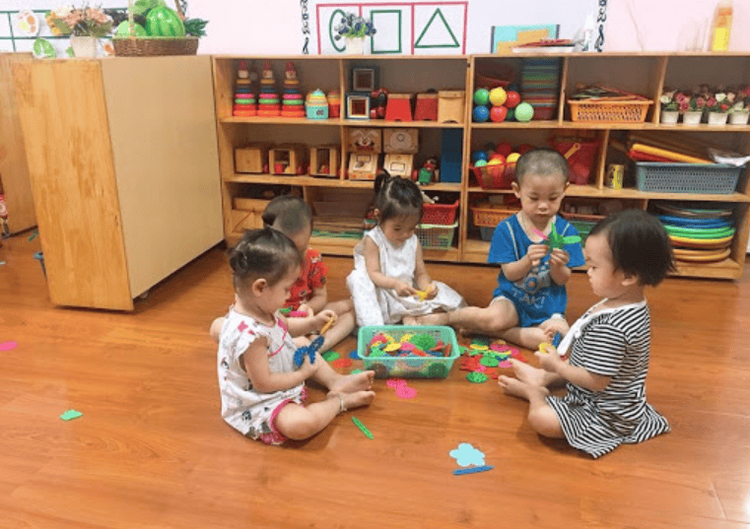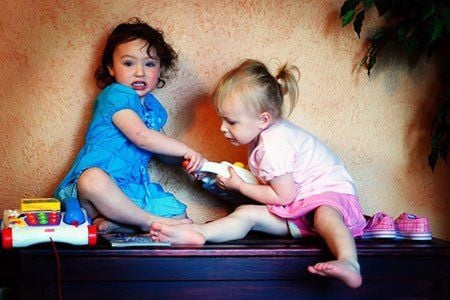This is an automatically translated article.
How to teach children to understand and be generous to others and everything around them? The following article will help us learn more about how to teach children to be generous.1. Children's actions at this age
Preschoolers are in the process of becoming a more independent individual in this society. Friendships are important and group activities are a favorite pastime. This means your child will have moments of being very generous, such as he and his friend taking turns shoveling sand or sharing their cookies, but these actions will be inconsistent and will not always happens when you want.However, this inconsistency is completely normal. Preschoolers still think of themselves first. Children also value personal possessions, so it is not easy to share them with other friends. Paul Coleman, a psychologist, family therapist and author of How to Say It to Your Kids, said: "To us, a toy is just an object, but to children it is not. Toys are children's possessions.
When children are generous to others, you should give them certain praises. It's also an effective way to teach children to share.

Trẻ mẫu giáo đang trong quá trình trở thành một cá thể độc lập hơn trong xã hội này
2. How to teach children to be generous
You need to show generosity: Teaching by showing your child your actions is the most effective way to influence your preschooler's behavior. So, over lunch, you could say to your partner, "Would you like a piece of my sandwich? Let me share it with you." Sharing a fun activity will also leave an impression on your child, such as “I am watering the plants, do you want to share it with me?” The more you use the word "share", the sooner your child will learn what it means.Talk about other people's wants and needs : Wayne Dosick, a rabbi and author of The Golden Rule: Ten Moral Values Parents Need to Teach their Children says: “You're trying to help children integrate into society. So when your little one says to you, "I want chocolate milk!" while you're in the grocery store, you might say, "Okay, that's what I want. Now, what do you think Dad would like? What should we bring home for him?"
You are teaching your child to recognize the needs of others in the most gentle yet effective way.
Teach your child that sharing is sometimes temporary: Your child will feel better knowing that another friend is using his toy and you can still get it back. So explain to your child, "You're just borrowing my doll right now. She won't bring it home."
Show your child you don't accept selfishness : Timely and consistent reprimands, but not harsh ones, will teach your child about your stance on generosity. However, don't punish your child or yell at him when he doesn't share with others. It may just make the child angrier.
Praise : Praise your child when he shares his things with others. Your child will feel very pleased with you, and eventually he will naturally learn to be generous.
It is not necessary for children to share some of their favorite items : It is not easy for children to share everything. Children can learn to share more easily if they know that some favorite items are just for them. It's a good idea to keep some items your child loves, such as a new pair of shoes or a stuffed animal, when a little friend comes over to play. Tell them that they don't have to share them because they're special, but explain that all of their other toys will be for both of you to play with.
Let children learn from their peers : The best way for children to learn to share is to let them learn from friends - and they will too! Try not to get into every toy war; Children will eventually learn to compromise when they realize that selfish behavior drives playmates away from them.
Look for the reasons behind your child's "stingy" : If sharing is still a big obstacle for your child, consider other issues in your child's life. Chances are there are several reasons why a child is this way, such as your family moving to a new place, your child starting kindergarten, or a favorite animal that has recently died. Sometimes a child will respond to changes by holding on more tightly to the objects they own. In that case, try not to get discouraged. Give your child time and support when needed.

Cho trẻ nhìn thấy những hành động của bạn là cách hiệu quả nhất để tác động đến hành vi của trẻ
For children to be healthy and develop well, it is necessary to have a nutritious diet in terms of quantity and quality balance. If children are not provided with adequate and balanced nutrients, it will lead to diseases of excess or lack of nutrients, which adversely affect the comprehensive development of children in terms of physical, mental and motor skills.
Parents should supplement their children with supportive products containing lysine, essential micro-minerals and vitamins such as zinc, chromium, selenium, and B vitamins to help fully meet their child's nutritional needs. At the same time, these essential vitamins also support digestion, enhance nutrient absorption, help improve anorexia, and help children eat well.
Parents can learn more:
Signs of zinc deficiency in children
Micronutrient deficiency and failure to gain weight in children
Please regularly visit Vinmec.com website and update useful information to take care of your child. Take care of the baby and the whole family.
References: babycenter.com, zerotothree.org, babycentre.co.uk













